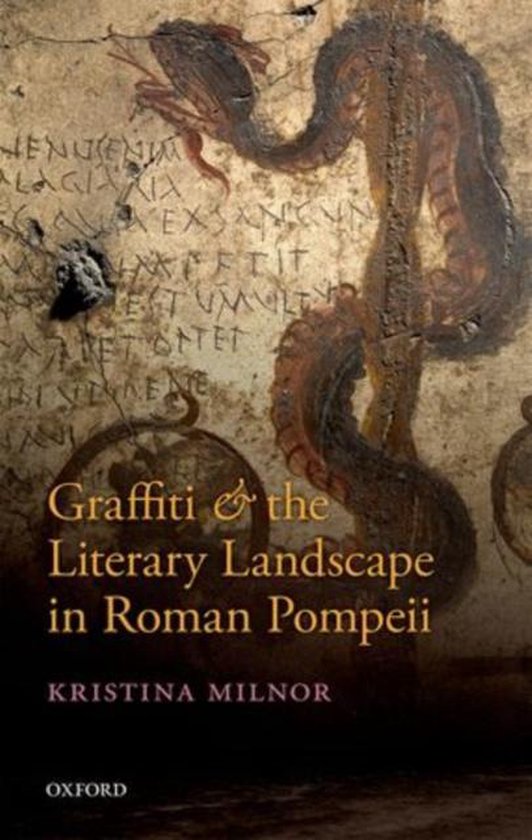
Graffiti and the Literary Landscape in Roman Pompeii
Milnor considers how the fragments of textual graffiti which survive on the walls of the Roman city of Pompeii reflect and refract the literary world from which they emerged. The volume looks in detail at the role and nature of 'popular' literature in the early Roman Empire and the place of poetry in the Pompeian cityscape.
In this volume, Milnor considers how the fragments of textual graffiti which survive on the walls of the Roman city of Pompeii reflect and refract the literary world from which they emerged. Focusing in particular on the writings which either refer to or quote canonical authors directly, Milnor uncovers the influence-- in diction, style, or structure--of elite Latin literature as the Pompeian graffiti show significant connections with familiar authors such as Ovid, Propertius, and Virgil. While previous scholarship has described these fragments as popular distortions of well-known texts, Milnor argues that they are important cultural products in their own right, since they are able to give us insight into how ordinary Romans responded to and sometimes rewrote works of canonical literature. Additionally, since graffiti are at once textual and material artefacts, they give us the opportunity to see how such writings gave meaning to, and were given meaning by, the ancient urban environment. Ultimately, the volume looks in detail at the role and nature of 'popular' literature in the early Roman Empire and the place of poetry in the Pompeian cityscape.
In this volume, Milnor considers how the fragments of textual graffiti which survive on the walls of the Roman city of Pompeii reflect and refract the literary world from which they emerged. Focusing in particular on the writings which either refer to or quote canonical authors directly, Milnor uncovers the influence-- in diction, style, or structure--of elite Latin literature as the Pompeian graffiti show significant connections with familiar authors such as Ovid, Propertius, and Virgil. While previous scholarship has described these fragments as popular distortions of well-known texts, Milnor argues that they are important cultural products in their own right, since they are able to give us insight into how ordinary Romans responded to and sometimes rewrote works of canonical literature. Additionally, since graffiti are at once textual and material artefacts, they give us the opportunity to see how such writings gave meaning to, and were given meaning by, the ancient urban environment. Ultimately, the volume looks in detail at the role and nature of 'popular' literature in the early Roman Empire and the place of poetry in the Pompeian cityscape.
| Auteur | | Kristina Milnor |
| Taal | | Engels |
| Type | | Hardcover |
| Categorie | | Kunst & Fotografie |